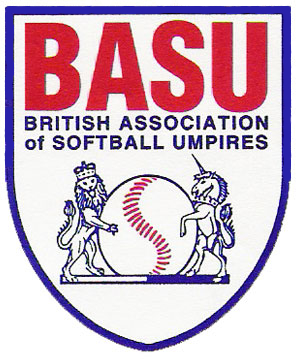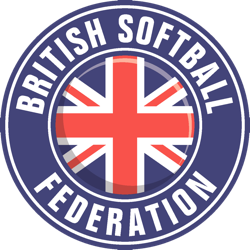 The British Association of Softball Umpires (BASU) held a well-attended AGM on Saturday 6 February in Slough, and much of the discussion was about how BASU can improve widen training opportunities and provide more support for new umpires.
The British Association of Softball Umpires (BASU) held a well-attended AGM on Saturday 6 February in Slough, and much of the discussion was about how BASU can improve widen training opportunities and provide more support for new umpires.
Discussions were wide-ranging, and included a new approach to fastpitch umpire training in 2016, support for BASU umpires to officiate at ISF tournaments, mentoring and assessment for newly-qualified umpires, subsidy for BASU clothing and equipment, incident reporting procedures, an issue with the number of BASU umpires coming from London, the BASU website and Facebook page, umpire training for Scotland, under-18 umpires and BASU fees.
Looking back at 2015
Reports from BASU Umpire-in-Chief Jes Sandhu and other Officers reflected a good year for umpiring in 2015.
BASU was responsible for umpiring at over 20 domestic tournaments last year plus the Great Britain Fastpitch League, and used 15 different Crew Chiefs, six of whom were taking on the role for the first time. Very few problems with coverage were reported. Almost 2,500 games were covered, and only around 10% of them were officiated by relief umpires. Most games at the Premier Nationals had two-man crews, and BASU also assembled an outstanding and highly-experienced umpire crew for the London Cup International Women’s Fastpitch Tournament held at Farnham Park, including six ESF-qualified and two ISF-qualified blues.
Overseas, BASU sent three umpires – Lesley Morisetti, Darrell Pitman and Hans Daanen – to the European Slowpitch Championships, Jes Sandhu umpired at the ESF Men’s Super Cup in Prague, Pete Saunders represented BASU as a guest umpire at the Canadian Men’s Slowpitch Championships and Bridget Cameron was selected to umpire at the WBSC Junior Women’s World Championships in Oklahoma City.
Financially, BASU made a small operating profit in 2015 and continues to have healthy reserves in the bank. A total of just under £39,000 was paid in umpiring fees last year. Most of BASU’s income comes from membership fees paid by BASU umpires and the £1 administration fee that goes to BASU from umpire game fees. BASU makes a planned loss on training courses and on umpire kit and clothing, which is partially subsidised.
The number of people attending BASU training courses continued to rise last year in all areas except London. Five two-day BASU qualification courses and four one-day courses were held in 2015, along with new one-day Advanced Courses in the North, where six trainees attended, and in the South, with nine trainees.
The BASU Committee
There have only been a couple of changes to the BASU Committee for 2016, with most Officers continuing in post. The BASU Committee for 2016 will be:
Executive Officers
Umpire-in-Chief: Jes Sandhu
Assistant Umpire-in-Chief: Lesley Morisetti
Training Officer: Chris Moon
Secretary: Pete Saunders
Treasurer: Steve Getraer
General Officers
Membership Officer: Kate Moon
Website Liaison & Development: Lesley Morisetti
BASU Representative to the BSF: Chris Moon
Fastpitch Officer: Bridget Cameron
Kit Officer: Andy Chase
Discussion topics
Here is a brief review of the main discussion topics at the BASU AGM:
Gap between training courses. In the past, qualified BASU umpires were required to re-take the two-day Qualification Course every two years. However, this requirement was recently reduced to every four years, with an assessment every two years and the new one-day Advanced Course seen as a means of filling the training gap. However, those at the AGM agreed that a four-year gap is too long for newly-qualified umpires, and so new umpires will be required to re-sit the Qualification Course after their first two years of umpiring at a national level.
Support for new umpires. At the same time, the meeting agreed that new umpires need a higher level of mentoring and support, especially in their first year after qualification. Some of this should take place at local league level, and some leagues have mechanisms for carrying this out. At national tournaments, BASU will ask Crew Chiefs to ensure that they or another senior umpire go to watch at least some games officiated by new umpires and provide feedback and support. The possibility of assigning experienced umpires to “buddy” with new umpires during their first season was also discussed, but it’s not clear whether this could work in practice.
Subsidy for umpire clothing and equipment. Newly-qualified BASU umpires – regardless of whether they are going to work nationally or only at league level – are given a free cap and ball bag and can purchase a BASU shirt at a substantial discount. In addition, some other items of BASU clothing, including jackets and visors, are sold to BASU members at cost price or less. However, given the healthy state of BASU finances, the meeting decided to continue these policies as an incentive to umpire qualification.
BASU slowpitch courses. The change in BASU policies requiring umpires to only re-sit the two-day Qualification Course every four years has resulted in a slight drop in demand for these courses. But the new Advanced Course, which was a success last year, has partially filled the gap – and can serve a useful purpose in prepping umpires who have been selected to umpire at ESF or ISF competitions. However, it is likely that no Advanced Courses will be run in 2016 unless there is a clear demand.
Opportunities to practice two-umpire systems. BASU is increasing the number of games it covers with a two-umpire system, particularly at National Championships or in the final stages of other tournaments. But less experienced umpires rarely get a chance to practice two-umpire mechanics. BASU plans to send out an instruction sheet on two-umpire mechanics to “junior” umpires and will invite them, when they have games off at tournaments, to “jump on” a game being blued by a more experienced umpire in order to get practical experience.
Umpiring in London. Somewhat counter-intuitively, the least amount of umpire training and activity takes place in London, despite the presence of the large and well-organised Greater London Softball Mixed League (GLSML) and a number of corporate leagues. Relatively speaking, London fails to pull its weight in producing tournament umpires, and games in most London leagues apart from the GLSML are not umpired by qualified umpires, or at all. BASU has been talking to the GLSML about this issue for a number of years without resolution. As far as corporate leagues are concerned, BASU may offer a free one-day or evening umpire course and see if there is interest and take-up.
Fastpitch umpire training. Although the number of fastpitch umpires in the UK has been gradually increasing, more are still needed as fastpitch activity expands. Bridget Cameron, an ISF-qualified fastpitch umpire resident in Edinburgh, has taken over as BASU’s Fastpitch Officer this year, and plans to run fastpitch umpire training courses or modules around Greater London Fastpitch League dates, pitched at players in the league (especially male and female Under-19 players) as well as parents and existing slowpitch umpires. Jes Sandhu commented: “Getting into fastpitch umpiring is a great learning experience and progression for slowpitch umpires.”
Help for BASU umpires to attend ISF competitions. It is an honour for BASU umpires to be selected to officiate at ISF competitions, but these competitions are often in far-flung parts of the world, and while accommodation and food is provided in the host country, the cost of getting there falls on the umpire. The BSF has already made a budget allocation this year to help BASU umpires in these circumstances, and BASU will also consider providing additional support on a case-by-case basis.
Incident Report Forms. BASU would like to tighten its procedures for reporting in-game incidents such as ejections or protests, and there are plans to develop a form for this – not be confused with the BSF form for reporting accidents and injuries (http://www.baseballsoftballuk.com/insurance/incidents). The ESF is also in the process of developing guidelines on incident reporting, which Mike Jennings will bring back from the ESF Congress on 12-13 February.
BASU communications. BASU formerly had its own website, but this was moved a few years ago to the BSF website (see BASU tab on the Home Page on www.britishsoftball.org). But this website is not updated often enough, and nor is BASU’s Facebook page. Jana McCaskill has offered to take over the Facebook page, but BASU still needs to find a way to keep its website pages updated and provide more information.
Under-18 umpires. BASU has recently received a question about whether a 14-year-old can be allowed to umpire at an adult slowpitch game, and the question of under-age umpires and players surfaces in British slowpitch from time to time. With regard to players, the BSF has declined to set an age limit, and instead prefers leagues to make their own determination, as they will be most familiar with the player, the team and the playing environment. The same could apply to umpires, but for anyone under 18 to umpire an adult game, BASU would require that there is parental consent and there must be a second umpire involved in the game and a responsible person present (perhaps the second umpire or a team Welfare Officer) who can intervene if required to protect the young person involved. The BASU Committee will consider this issue further.
Request from Scotland. BASU has received a request from leagues in Scotland to share umpire training materials due to a lack of courses north of Hadrian’s Wall. BASU is prepared to share materials, but will also point out that there are three experienced umpire trainers – Lesley Morisetti, Bridget Cameron and Jana McCaskill – resident in Scotland who can either deliver or supervise courses to help develop Scottish trainers.
BASU fees. Game fees for BASU umpires have not gone up for several years, and even though inflation has generally been low, umpires’ fees have not kept pace. Accordingly, BASU is considering raising umpire fees from the current £15 per game to £17 in 2017, in order to give the community and tournament organisers sufficient time to adjust and plan. BASU has asked for this proposal to be put on the agenda for the Softball League Heads Forum Meeting which will be held before the 2016 BSF AGM on 20 February in Manchester.
